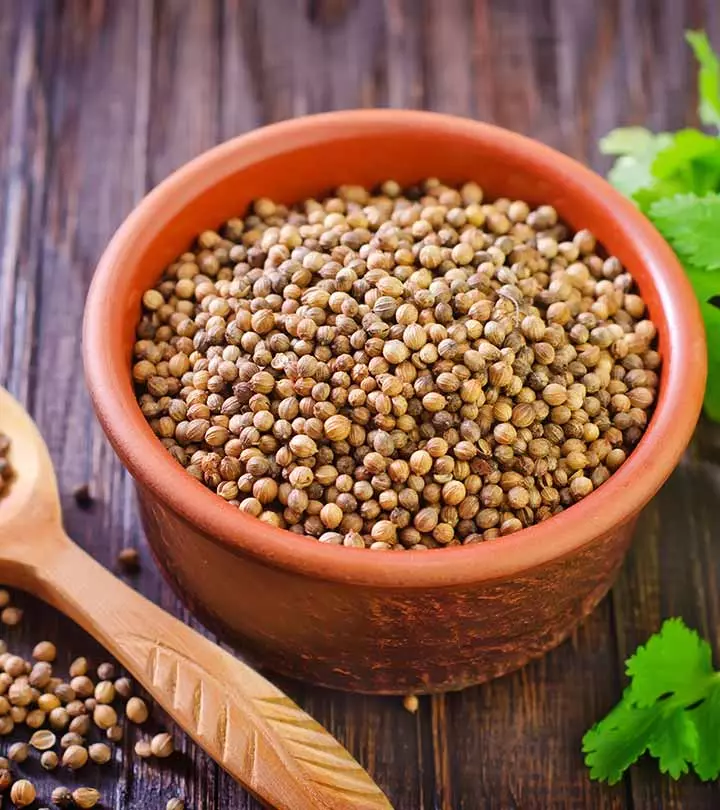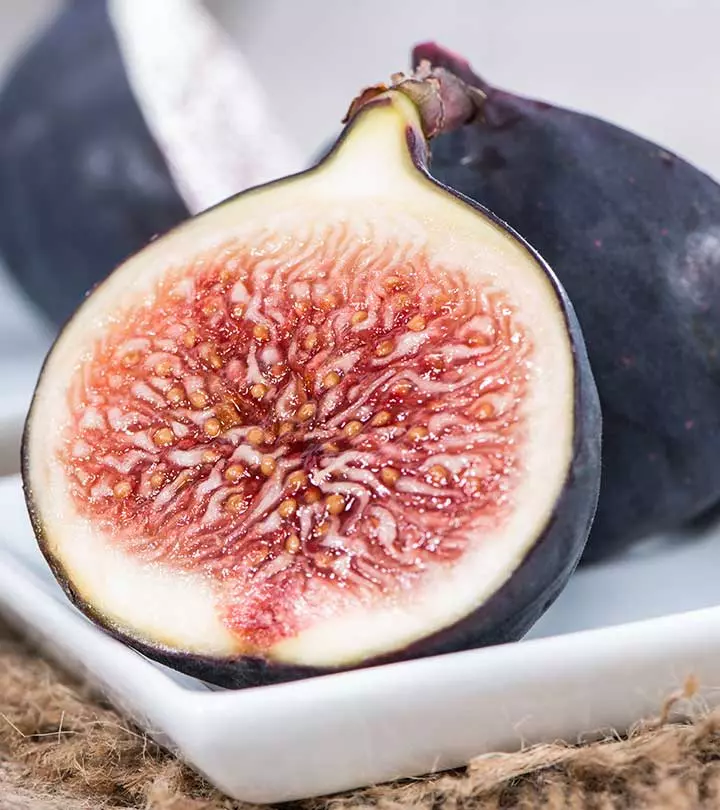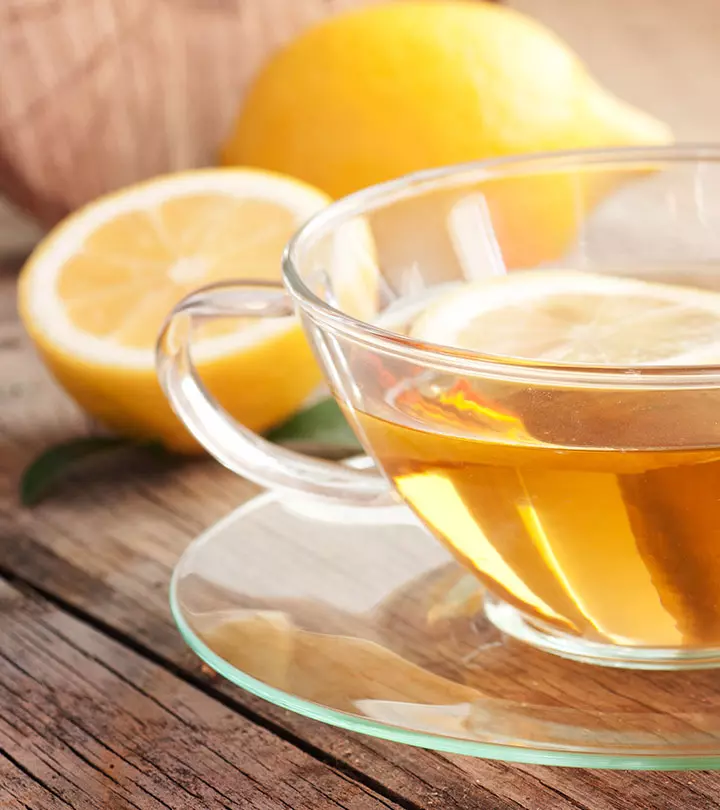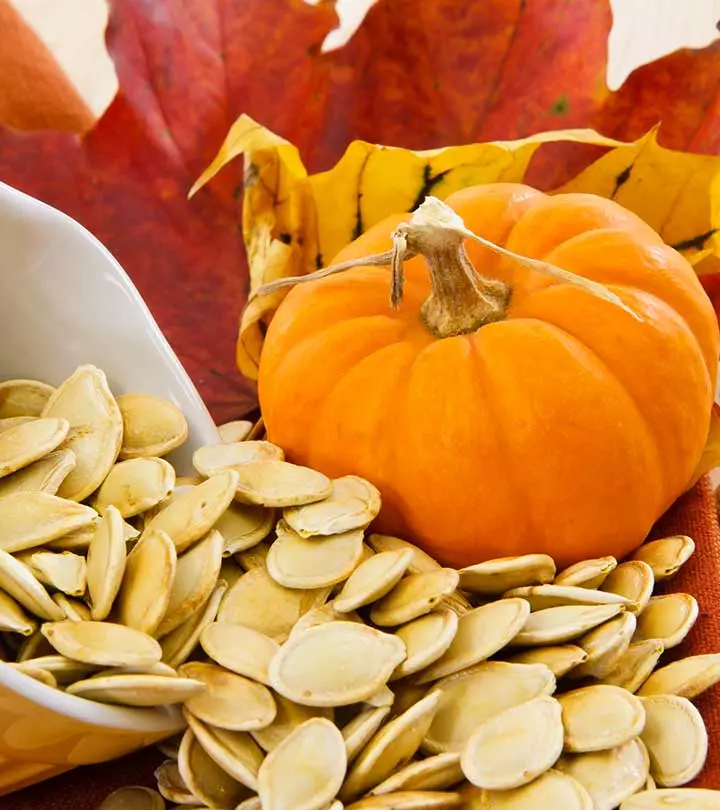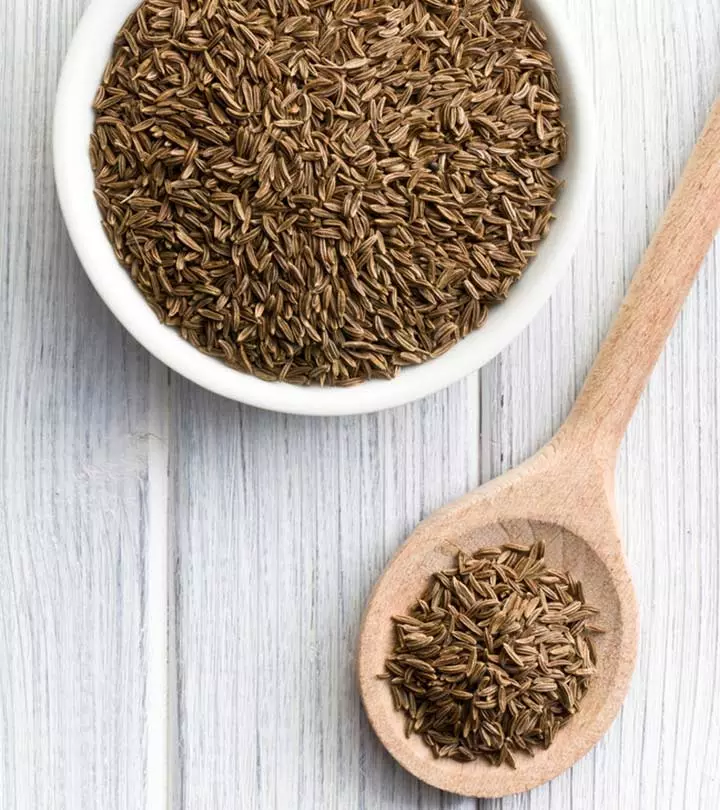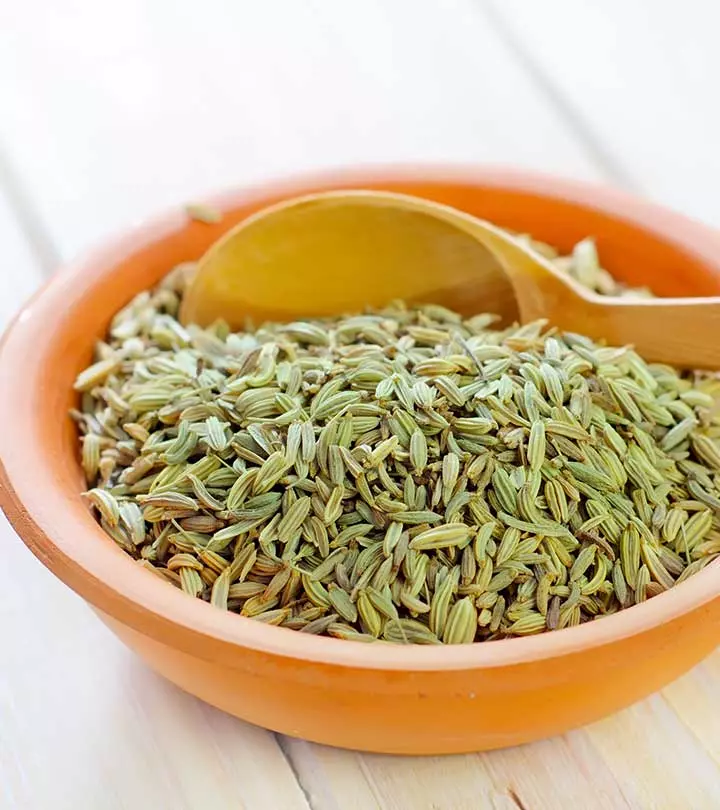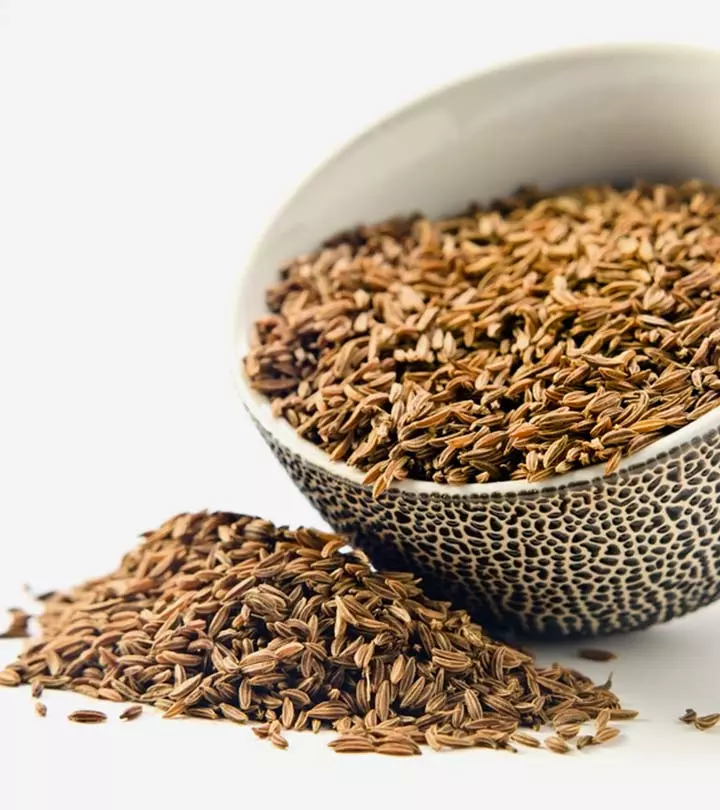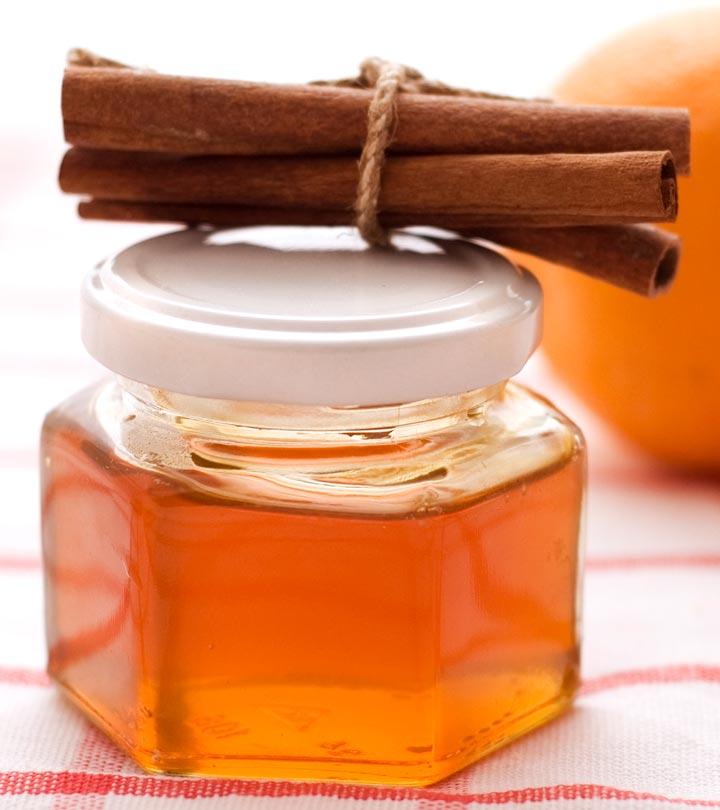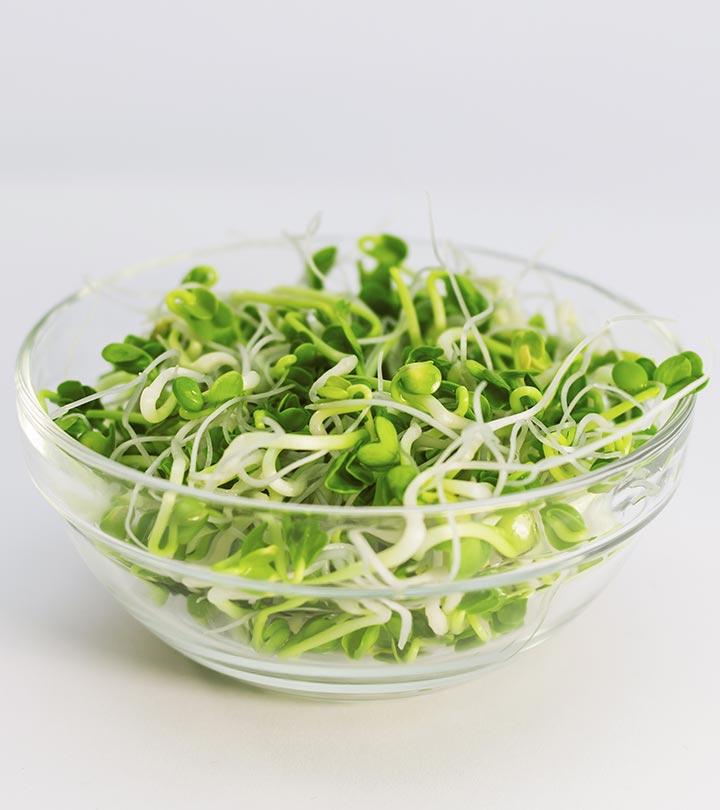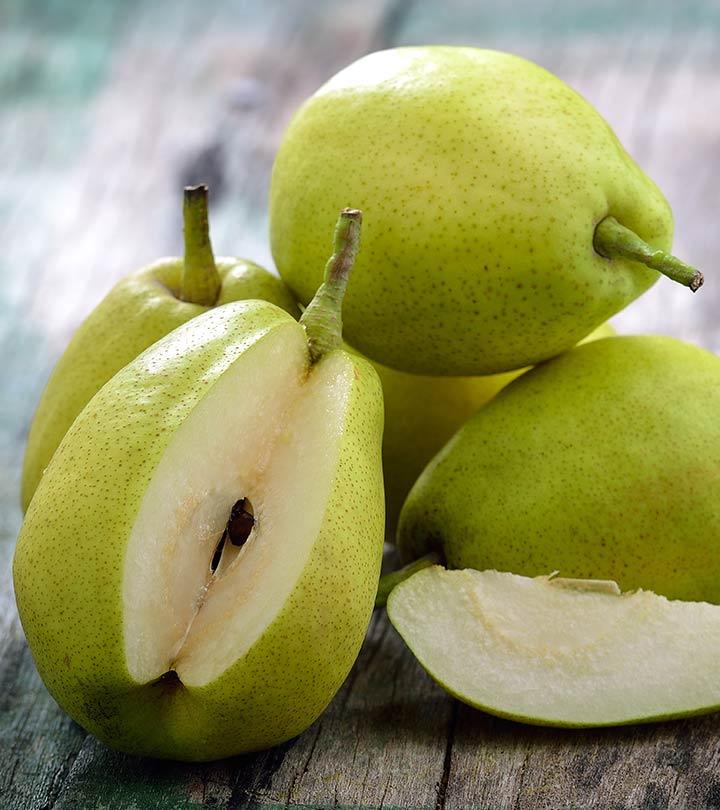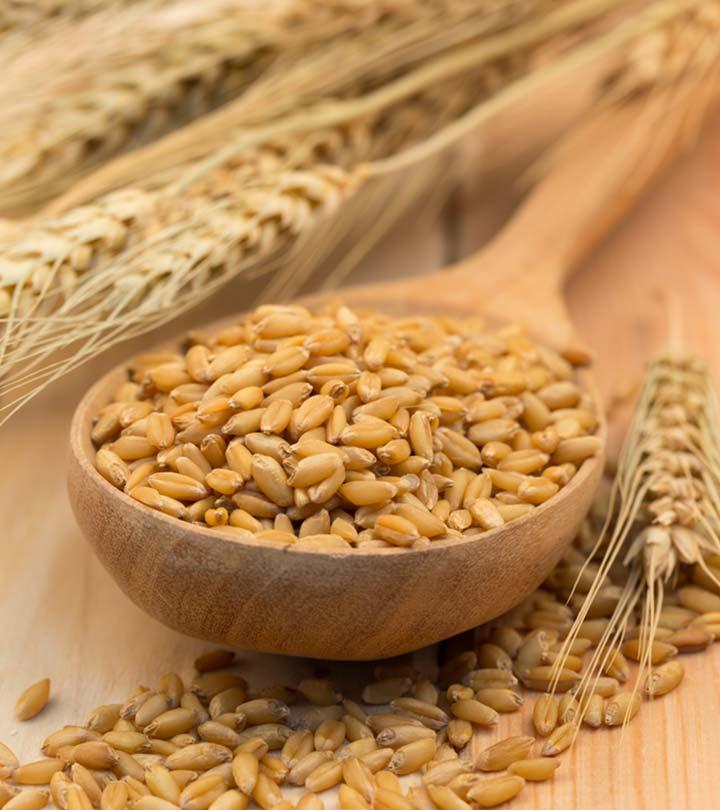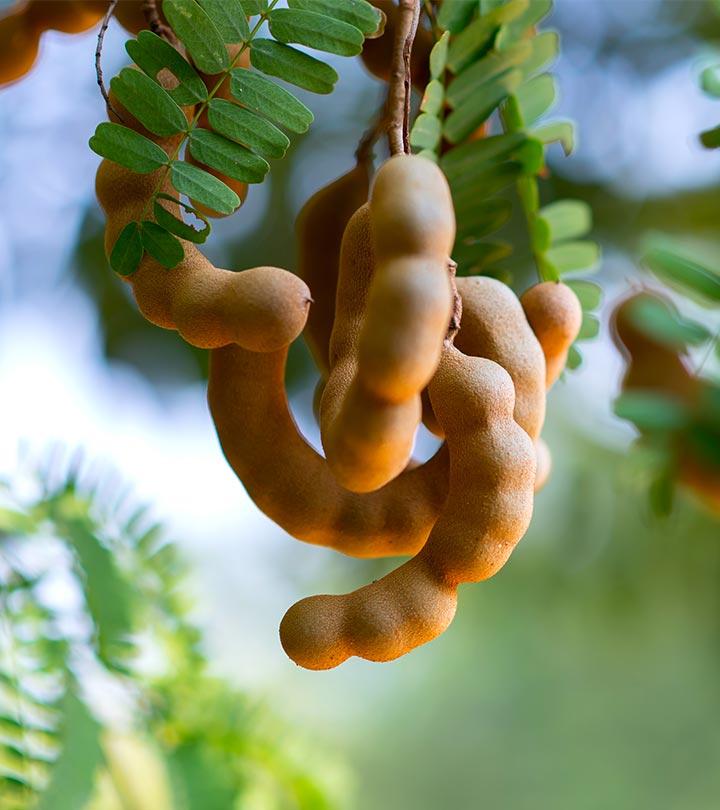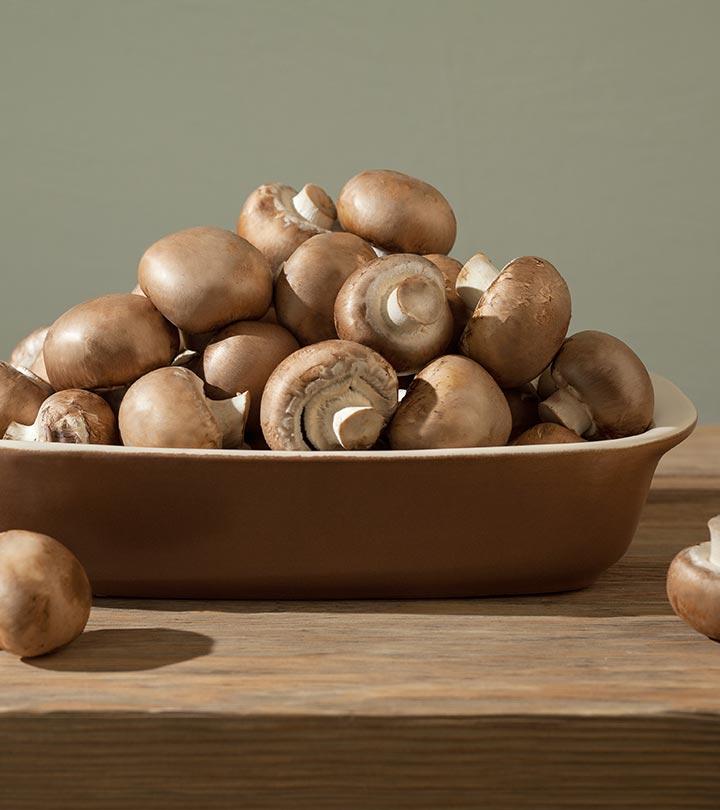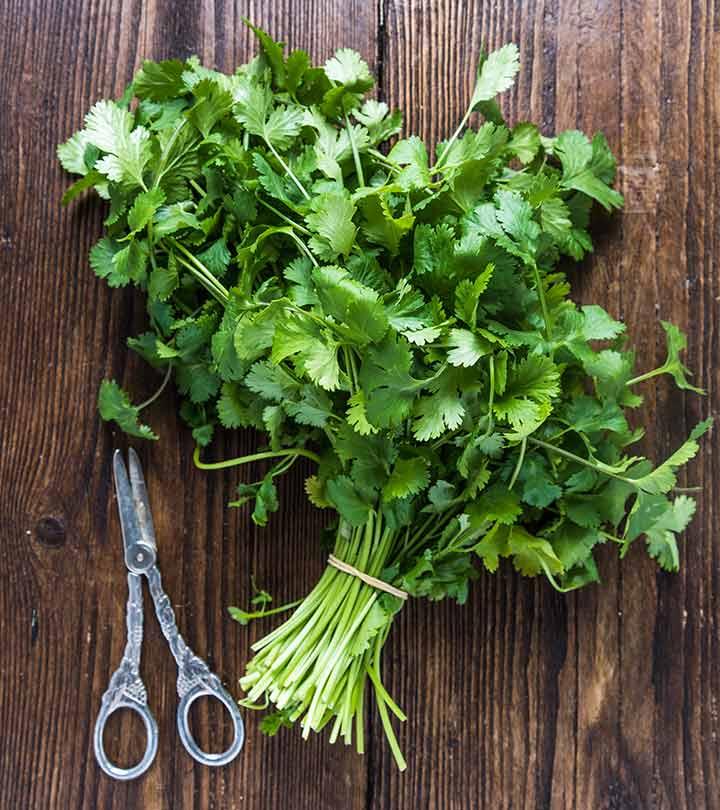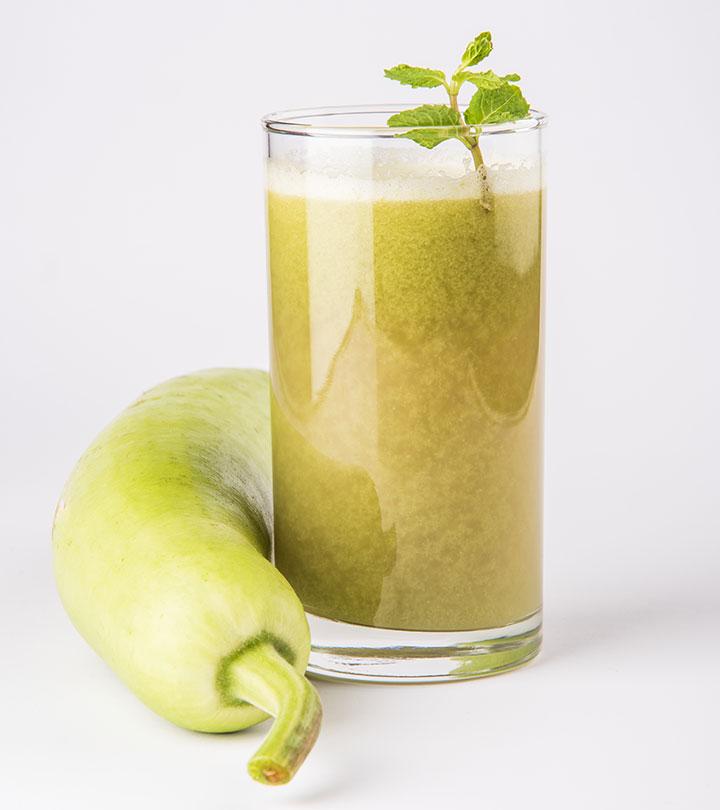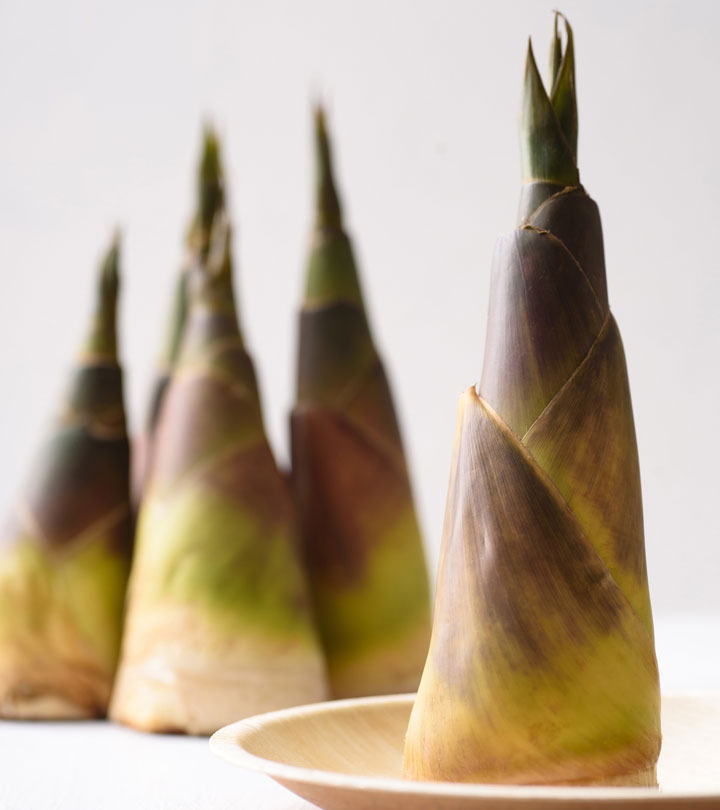9 Unexpected Side Effects Of Cumin Seeds
Keep a close eye on your cumin seed consumption; too much of it can be harmful.
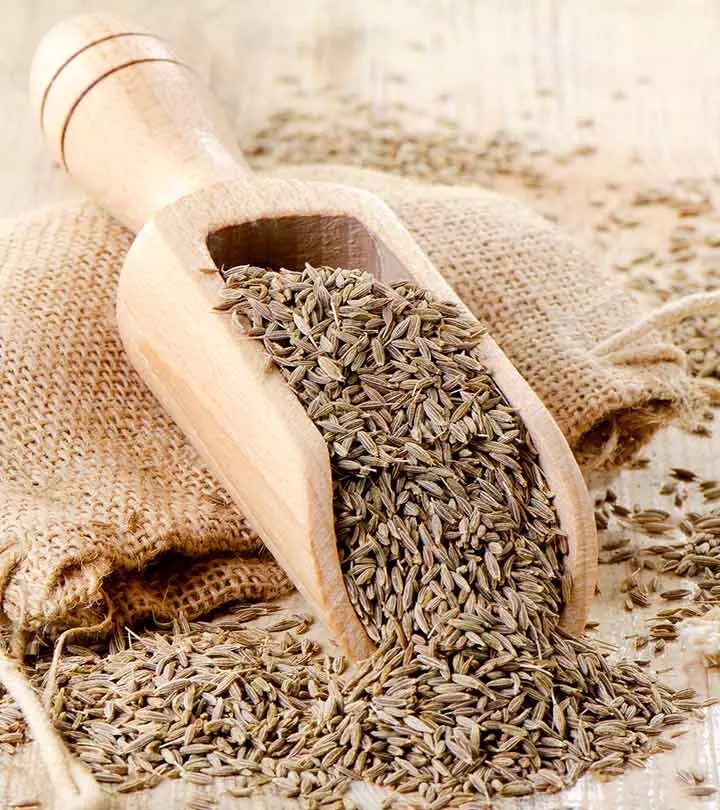
Image: Shutterstock
Cumin is one of the essential spices used in everyday cooking, especially in Indian cuisines. Be it the final touch of seasoning of the humble lentil soup or that secret spice paste bursting with flavor for that special dinner meal, cumin seeds are a must-add! Having said that, it might come as a surprise that there could be side effects of cumin as well! While cumin offers a ton of health benefits along with its refreshing flavor, there are certain things you need to be aware of, before using cumin too much. Wondering what and how? Fret not, we have done all the research and summed it all up for you in this article! Read on to know more about the side effects, like spice allergies, caused by cumin seeds.
 Know The Flip Side: Cumin Seeds
Know The Flip Side: Cumin SeedsShort-Term Effects
Heartburn, belching, low blood sugar levels, and heavy menstrual cycle.
Long-Term Effects
Excess consumption may have an abortifacient effect and lead to miscarriage in pregnant individuals.
Drug Interactions
May interact with diabetes medications and drugs that slow blood clotting.
When To See A Doctor
If you experience continued heavy bleeding during menstruation, or skin rashes then seek medical help.
In This Article
9 Side Effects Of Cumin Seeds
Like everything else, cumin seeds have their own set of side effects. Here are a few of them:
1. Heartburn
Cumin seeds are known to help with gastrointestinal distress, but ironically they can also cause one of the most common digestive problems, heartburn! Cumin seeds facilitate the eviction of more gas into your gastrointestinal tract (1), (2). This could be more severe in some cases where heartburn affects existing health issues like irritable bowel syndrome may lead to other issues like diarrhea and stomach pain. Some symptoms of heartburn include nausea (and dizziness) or vomiting.
Linh, a blogger detailing her first trip to India, discovered her allergy to cumin. Recounting her experience, she shares, “I didn’t know then, but I was allergic to cumin…. One day, I suddenly collapsed on the stairs as several of us walked to school, because of an intense, excruciating stomach Pain that soon became my worst enemy for the next months, years, and occasionally to this day. I remember waking up in the middle of the nights, sweating, crawling, suffering. The pain started somewhere deep inside my existence, shuffling and swirling my internal organs, sucking out every last bit of positivity I reserve on moments like that. The pain was invisible and unidentifiable (i).”
2. Belching
The carminative effect of cumin seed may also cause excessive belching. Sometimes belching is referred to as a ructus or burping, which involves excess bloating and gas from the intestinal tract and stomach escaping through the mouth. Belching sometimes has a bad odor and characteristic sound. Though not a problem in the real sense of it, belching can definitely lead to embarrassment (1), (2)!
3. Liver Damage
The oil present in cumin seed is highly volatile and can cause liver and kidney damage if one consumes cumin seed in large amounts for a long period of time. This suggests that it negatively affects liver toxicity as liver damage leaves the organ more susceptible to toxins.
4. Abortifacient Effects
Cumin seeds may have an abortifacient effect on pregnant women. This means that consuming large amounts of cumin seeds can lead to a miscarriage or induce premature labor (1), (2), (3).
 Trivia
Trivia5. Narcotic Effects
Cumin seed has narcotic properties. Cumin seeds should be consumed with caution as they can become addictive. Other side effects of cumin seeds are mental clouding, drowsiness, and nausea.
6. Heavy Menstrual Cycle
Cumin seeds may lead to heavy bleeding during menstruation. If cumin seeds are consumed in large amounts, then you can blame your heavier than usual periods on them (3).
7. Low Blood Sugar Level
Consuming cumin seeds in large amounts can cause hypotension. This point is important to remember if you are heading for surgery in the near future. During surgery, it is essential to maintain the blood sugar level. So your doctor may advise you to stop eating cumin seeds at least 2 weeks before surgery as your blood sugar level needs to be controlled during and after surgery (4). A common symptom of low blood sugar levels is headaches. Severe low blood sugar levels may cause serious side effects like seizures and brain damage.
 Quick Tip
Quick Tip8. Not Good For Diabetics
Diabetes patients need to control their blood sugar levels. They should have normal blood sugar levels to remain healthy. Fluctuating blood sugar levels are a strict no-no for most diabetics. As mentioned before, cumin seeds may decrease your blood sugar level quickly and can cause low blood sugar levels in some individuals (4). So, people with diabetes should avoid consuming cumin seeds in excess.
9. Causes Allergy
As with most foods, cumin seeds may also lead to food allergies. Consumption of cumin seeds can also cause skin rashes and allergies. So people with skin allergies should consume cumin seeds in low amounts if they must (5), (6). In some cases food allergies can lead to serious respiratory distress too.
To avoid these side effects of cumin seeds, there are some substitutes that can be used. Let’s look at them in the next section.
What Is The Best Substitute For Cumin Seeds?
The following seeds and spices can be used as a substitute for cumin seeds and add flavor to food:
- Caraway Seeds
- Oregano
- Mustard seeds
- Coriander Seeds
- Fennel Seeds
- Ground Coriander
In case you do not want to use a substitute and would rather take your chances with cumin seeds, you need to know the right way to store it. Learn that in the next section.
How To Store Cumin Seeds?
Cumin seeds can become moist and lose their flavor when exposed to humidity. Therefore, it is important to store them in a dry and airtight container. Glass or plastic containers are ideal to store them in as they are non-reactive and help retain the flavor.
Infographic: Most Common Side Effects Of Cumin Seeds
Cumin seeds have a refreshing flavor and are one of the most widely used spices in Indian cooking. Although they offer many health benefits, like aiding blood clotting disorders, they also have side effects when consumed in large quantities. Check out the most common side effects of cumin seeds in the infographic below.

Illustration: StyleCraze Design Team
Cumin seeds are aromatic spices used in many cuisines. Nevertheless, too much of it can be problematic. The side effects of cumin seeds range from causing liver damage to possibly lowering blood sugar levels. Thus, diabetic patients should be careful before overindulging on cumin seeds. It may cause heartburn or belching in moderate cases, but can lead to miscarriage in severe cases. Cumin seeds may also cause heavy bleeding during menstruation. In some cases, it can trigger allergic reactions as well. Limiting its consumption can help avoid many health complications.
Frequently Asked Questions
Can we eat cumin seeds daily?
Yes. Cumin seeds are considered safe for daily consumption, even in larger quantities.
Is cumin poisonous?
No. Cumin seeds are nontoxic.
How much cumin can I take daily?
The typical dose of 300 milligrams to 600 milligrams of cumin per day as a supplement is safe (7).
Can I drink cumin water every day?
Yes, since there are not too many known side effects of jeera water, it is completely safe to drink cumin water every day.
Do cumin seeds cause constipation?
No. Cumin seeds are natural laxatives and promote bowel movement.
Key Takeaways
- Use cumin seeds in moderation to avoid the side effects.
- An allergy to cumin seeds can result in rashes and itching.
- Although these seeds help treat digestive issues, using them in large amounts can cause bloating.
- Avoid cumin seeds if you are pregnant as they may lead to contractions and a miscarriage.
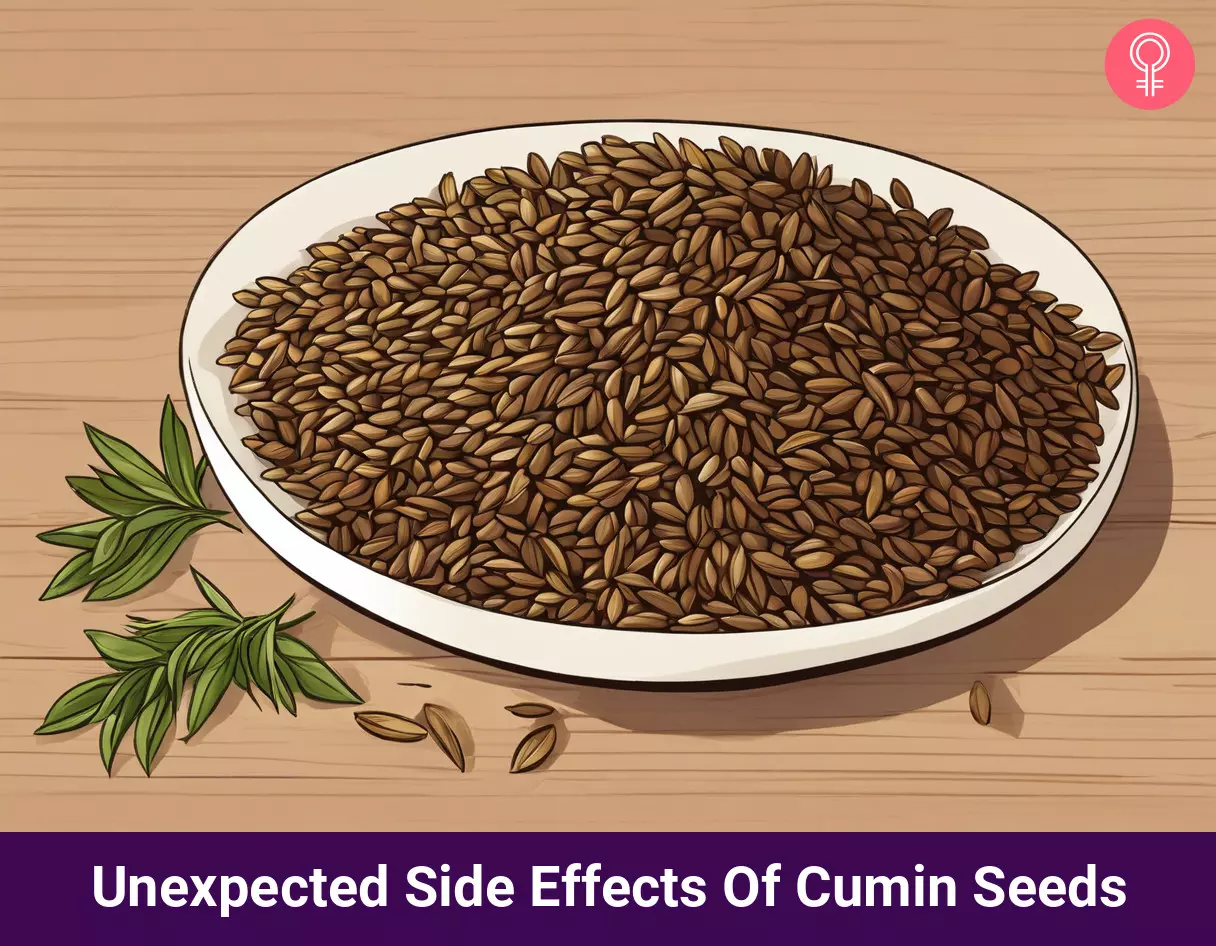
Image: Stable Diffusion/StyleCraze Design Team
Cumin seeds are a powerhouse of health benefits, but they can also have unexpected side effects. Learn the 10 unexpected side effects of cumin seeds you should know about in the video below.
Personal Experience: Source
StyleCraze's articles are interwoven with authentic personal narratives that provide depth and resonance to our content. Below are the sources of the personal accounts referenced in this article.
i. The most isolating experience on Earthhttps://medium.com/linh-dao/10-things-i-know-to-be-true-three-c247a931eaed
References
Articles on StyleCraze are backed by verified information from peer-reviewed and academic research papers, reputed organizations, research institutions, and medical associations to ensure accuracy and relevance. Read our editorial policy to learn more.
- The pharmacological activities of Cuminum cyminum – A review
https://www.researchgate.net/profile/Ali-Al-Snafi/publication/313742829_The_pharmacological_activities_of_Cuminum_cyminum_-A_review/links/58a46696a6fdcc0e0755de90/The-pharmacological-activities-of-Cuminum-cyminum-A-review.pdf - Cuminum cyminum – A Popular Spice: An Updated Review
https://phcogj.com/sites/default/files/10.5530pj.2017.3.51.pdf - Study of Analgesic Activity of Methanolic Extracts of Cuminum Cyminum (L.) and Centratherum Anthelminticum (L.) in Mice
http://annals-ashkmdc.org/index.php/ashkmdc/article/view/36 - Antihyperglycemic activity and inhibition of advanced glycation end product formation by Cuminum cyminum in streptozotocin induced diabetic rats
https://www.sciencedirect.com/science/article/abs/pii/S0278691510002759 - Presence of Undeclared Food Allergens in Cumin: The Need for Multiplex Methods
https://pubs.acs.org/doi/abs/10.1021/acs.jafc.5b05497 - Cumin
https://journals.lww.com/nutritiontodayonline/Fulltext/2021/05000/Cumin__Potential_Health_Benefits.8.aspx - The pharmacological activities of Cuminum cyminum -A review
https://www.researchgate.net/publication/313742829_The_pharmacological_activities_of_Cuminum_cyminum_-A_review - Extracts from two frequently consumed spices — Cumin (Cuminum cyminum) and turmeric (Curcuma longa) — Inhibit platelet aggregation and alter eicosanoid biosynthesis in human blood platelets
https://www.sciencedirect.com/science/article/abs/pii/0952327889901877
Read full bio of Dr Archana Batra
Read full bio of Ravi Teja Tadimalla
Read full bio of Moksha Gandhi










